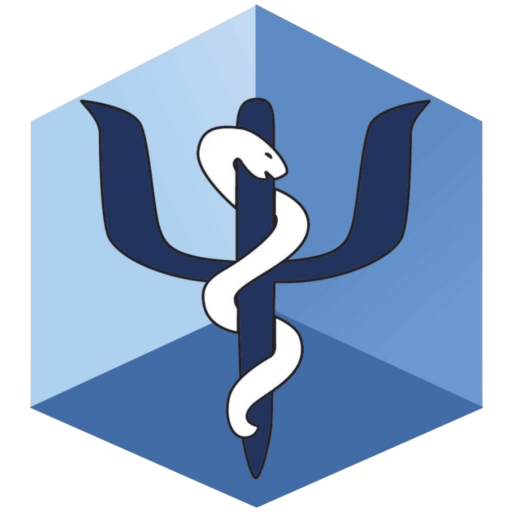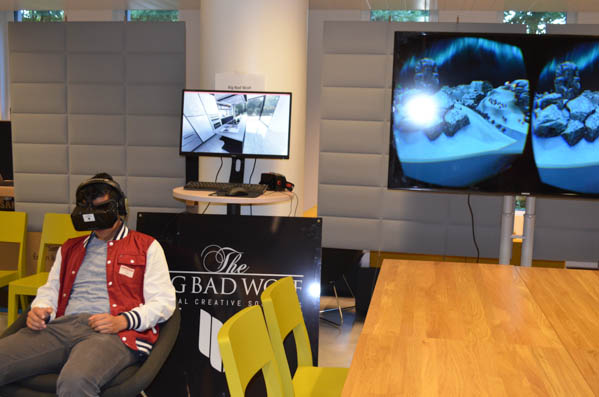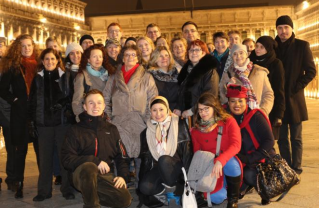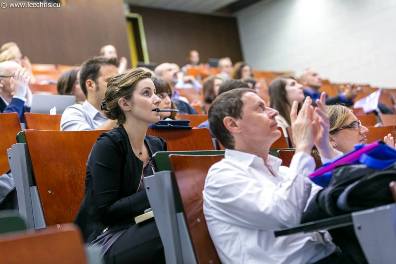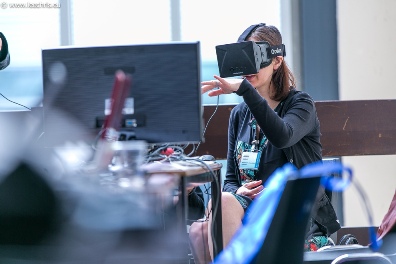19th Annual
CyberPsychology, CyberTherapy and Social Networking Conference (CYPSY19)
Connecting the Virtual and the Real:
Transforming Health & Well-being
June 17-19, 2014 Washington, D.C.
http://www.interactivemediainstitute.com/cypsy19
CALL FOR PAPERS
Abstract Submission Deadline: January 1, 2014
Full Paper Submission Deadline: March 15, 2014
The 19th Annual CyberPsychology, CyberTherapy & Social Networking Conference (CYPSY19) will take place on June 17-19, 2014 in Washington, D.C.. Jointly organised by the Interactive Media Institute, in collaboration with the Virtual Reality Medical Institute, Uniformed Services University, and International Association of CyberPsychology, Training & Rehabilitation, the conference is an international networking and sharing platform for researchers, clinicians, policymakers, funding agents and industry leaders to share and discuss advancements in advanced technologies, such as Virtual Reality, and healthcare. The conference will explore how these technologies are changing individual behavior, societal relationships, and interpersonal interactions.
We are honored to have U.S. Congresswoman Grace Napolitano as our opening Keynote Speaker. Congresswoman Napolitano revitalized the Congressional Mental Health Caucus and has hosted congressional briefings on children’s mental health, veterans’ mental health, and suicide prevention.
To submit your abstract, please visit our website shortly at interactivemediainstitute.com/CYPSY19 or submit directly here. For further information, please contact the conference coordinator, Chelsie Boyd, at cybertherapy@vrphobia.com.
Because of the international nature of CYPSY19 and the expanded focus of its theme, we recognize the importance of extending our invitation to participants around the world interested and dedicated to enhancing public awareness of how technology can overcome obstacles and increase access to top quality healthcare for all citizens.
Dates
| First Call for Abstracts |
15 Sep. 2013 |
| Abstract Deadline Submission |
1 Jan. 2014 |
| Notification of Acceptance/Rejection of Abstract |
1 Mar. 2014 |
| Full Paper/Presentation Requirements |
15 Mar. 2014 |
| Oral Presenter 2-page CV Deadline |
15 Mar. 2014 |
| Early Registration Deadline |
15 Apr. 2014 |
| Late Registration Deadline |
1 Jun. 2014 |
CYPSY19 Tentative Schedule
17 June – Preconference Workshops
17 June – Full day Clinician Training on VR and Physiology to Treat PTSD
18 Conference – Conference Day 1
Cyberarium
Poser Session
19 June – Conference Day 2
Gala Dinner
Abstract and Presentation Themes
CYPSY19 focus areas include:
1. The Impact of Technologies as Tools
CYPSY19 will continue its examination of the exciting applications of advanced technologies being used in training, therapy, rehabilitation, and education for the improvement of the quality and availability of healthcare for people around the globe.
2. The Influence of New Technologies
CYPSY19 will further its investigation into how new technologies are influencing behavior and society through the use of positive technology, healthy ageing and well-being.
3. The Imprint of Social Networking
CYPSY19 will embrace, as it did in 2012, the exploration of how social networking tools are changing individual behavior, interpersonal relationships, and society.
4. The Introduction of New Technologies and New Terms
CYPSY19 will study the psychological aspects of new areas influenced by technology such as cyberfashion, cyberadvertising and cyberstalking.
Encouraged Topics
Encouraged topics include but are not limited to:
• Advanced Interaction Training
• Videogames
• Telehealth & Telepresence
• Video‐conferencing
• Robotics
• Brain Computer Interfaces
• Cognitive Rehabilitation & Therapy
• Wearable computing
• Non-invasive physiological monitoring devices
• Positive Technology
• Social Networking in Healthcare
• Information Technologies
• Social implications of Facebook, Twitter, etc.
• Neurorehabilitation
• Mobile healthcare
• Cyberbullying
• Health Applications
• Healthy Ageing
• Games for Health
• Serious Games
• Apps for Kids
Abstract and Presentation Types
You can submit an abstract to one of the following three types of communications:
· Poster
· Oral
· Early Innovators Session
Oral presentations are 15 minutes whereas presentations in the Early Innovators Session, the panel dedicated to student presentations, are 10 minutes.
Submission of Abstracts and Papers
If you would like to present a poster, an oral presentation or a student oral presentation at CYPSY19, please submit an abstract for the Scientific Committee to review based off of the guidelines below. Workshops submissions are by invitation only.
Review Procedure: Each submission is peer-reviewed and will be selected based on scientific merit. Abstracts should clearly outline results from scientific studies. All presentations must contain original and scientifically valid information. Reports on completed research are clearly favored over descriptions of planned research. Commercial promotion and funding requests are not appropriate. The Scientific Committee will blindly review all abstracts and may invite author(s) to make a poster presentation at the conference even if they requested an oral presentation. The oral/poster/reject decision is at the discretion of the Scientific Committee.
Abstract Preparation:
· Required structure: Title, Author/s, Affiliation/s, Short Abstracts (250 words), Keywords, Introduction/Problem, Method/Tools, Results, Conclusion. You must adhere to the document format requirements of IOS Press.
· Novelty/Discussion: Please cover what makes this research different from prior work by you or by others. Please focus on the most unique aspect of your research, instead of broad implications.
· References: Optional but appreciated. Please use ONLY the IOS Press standard bibliographic format (see instructions and below).
· File formats: Acceptable formats are Word 97, Word 2000, or Word XP format (.doc). No .docx or LaTeX, please.
· The conference is in English and all abstracts will need to be in English. Please check spelling and grammar as your abstract will be printed in the conference syllabus.
· Please visit IOS Press to download the instructions. Abstracts that do not meet the required criteria will be sent back to the author to be re-formatted.
Abstract and Full Paper Publication
· Presenters are required to submit a 2-page extended abstract which should include a short abstract (250 words).
· For those who present their oral/student abstract in person, their full paper will be published in the Annual Review of CyberTherapy and Telemedicine, indexed in PsycINFO.
Presenter Requirements:
· Oral presentations are to be 15 minutes long plus 5 minutes for questions. Student presentations are 10 minutes long plus 5 minutes for questions.
· Presenters must register for the conference. There is a limit of one oral/symposium presentation per first author per registration. For a full paper to be published in IOS Press, the study must be presented in person at the conference. Any absences will result in forfeiture of registration costs as well as an automatic rejection in the inclusion of the full paper in the Annual Review of CyberTherapy and Telemedicine. (ARCTT)
Student Symposium
Sponsored by the iACToR Student SIG, the Student Symposium will provide students an opportunity to have a dedicated session during the conference. Please see above for the abstract submission guidelines.
Online Submission
When you are ready to submit your abstract, please visit http://www.interactivemediainstitute.com/CYPSY19 or here. More information will be asked during submission of your abstract, such as name of the author, affiliation, and if your study is completed or still in progress.
For more information regarding abstract submission or the call of papers, please email cybertherapy@vrphobia.com.
